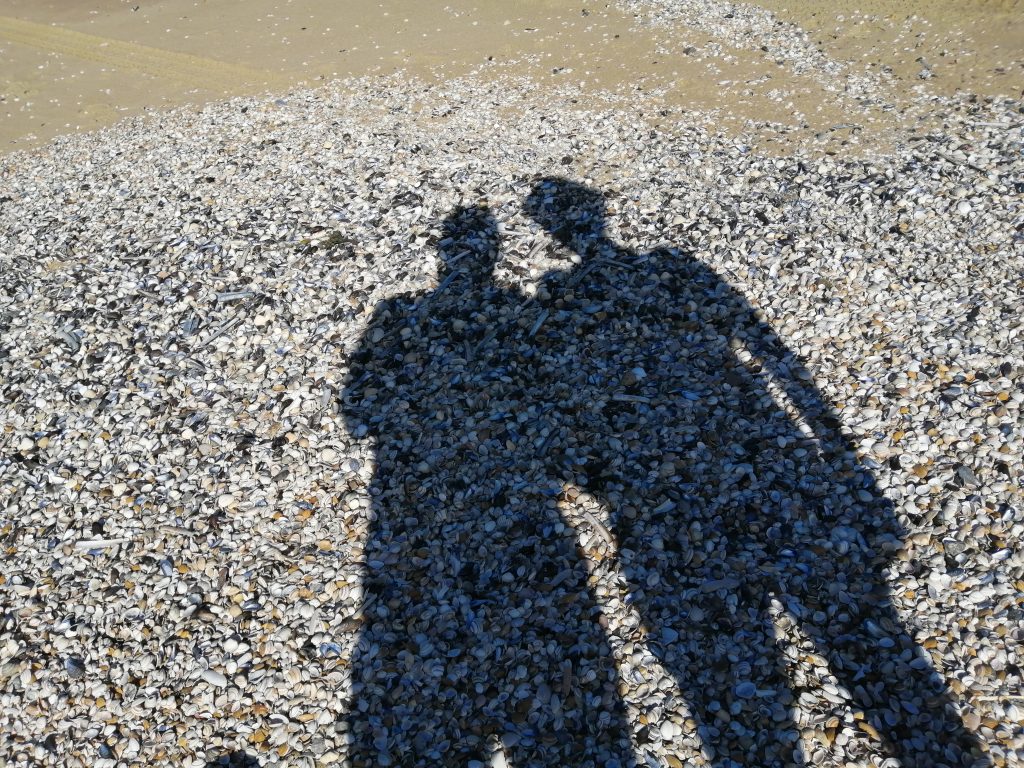
The following text is a guest contribution by Gabriele Guthmann. She runs a practice for psychological counselling, energy work and consciousness coaching, and lives in Rhineland-Palatinate.
Our society is subject to increasing polarization, according to a recent survey by the Konrad Adenauer Trust. A look at the development of German society since the turn of the millennium shows a growing imbalance in international comparison with countries like Sweden or Denmark.
The imbalance of income structures, political and economic uncertainties lead to the experience of different truths of our social values. A society that has allowed itself to lean back on security and stability for decades is falling into increasing disorientation. This results in fear of loss, aggression, excessive demands and the feeling of being separated from others.
Isn’t the idea of a separate society a paradox in itself? Separation is the absence of connection, the togetherness of people in a community.
At first glance a community of people would appear inseparable. After all, in a global and personal context, we constantly strive to avoid divisions and thus isolation from others. The fear of separation and even the tabooing of death leads to a veritable flood of ever new rules and norms. Control bodies and instruments in fact aim to prevent separation.
To grow you need space. To grow and develop in freedom you need trust. Fear of separation limits true growth in a society which, due to its complexity, always comes up against the limits it has set for itself. We are increasingly degenerating into a collective that is only “mainstreamed”. But why is there no sense of community, no growth and no full development of the potential of all involved?
If we allow ourselves a change of perspective, away from a social viewpoint, we are thrown back on ourselves. But what exactly is this self, shown in so many variations in German literature? C.G. Jung defines the self as the “unknown wholeness of man”, which strives for realization within us. It is the process of the so-called individuation, which, from a psychological point of view, finds its equivalent in spiritual perfection. There is a deeply social component in the recognition of our self, by means of which we are only able to recognise ourselves and our fellow human beings as true individuals beyond all social filters.
The connection to our self is already reduced in childhood by the non-fulfilment of early childhood needs to the ego. This is where separation arises through inner deprivation. The fear of not being able to compensate for this inner paucity will often accompany us throughout our lives. We are enticed to pure outward appearances without ever finding fulfillment.
After all, we are always trying to adapt our behaviour to external circumstances, to behave in an excessively correct way just to comply with social norms and in conseqzuence others’ expectations. However, through external pressure we increase the distance from our self. Although turning to your self implies we fulfil our needs and desires, we still submit ourselves to a life beyond authenticity and attachment.

Living a fake life has its price and in the long run leads to mental overload (Bannasch, Junginger 2015). Accumulated emotions, if turned against ourselves, lead to mental illness such as burnout, depression or other forms of psychological and physical overexertion. These contemporary phenomena have been long established. However, if fear, anger, hatred and aggression are discharged in the social system, it has fatal consequences both on a political and social level and is reflected in xenophobia, party-political faux-pas, etc., which are beyond any control.
A society on the basis of unconscious and thus separately experienced egos will only be able to grow together into a sincere community to a limited extent. Only honesty to oneself, in connection with authenticity and openness, can create the social climate for a harmonious co-existence in which a positive further development can take place.
By recognising ourselves and living our individual self-expression, we give others the space for their own creative development. Only the conscious process of self-discovery allows us to live in peace with ourselves and others, and to enter into an active and constructive exchange. Only when people find their way back to the connection with themselves and others can the polarization of our social structures be overcome.
It takes courage and a global vision of the future to leave outdated patterns of behaviour and thought structures behind. Every single one of us bears the responsibility for the development of our self and thus for the individual shaping of our lives. This is a path towards a new definition of Us in an open and just community of values.
German text: Gabriele Guthmann
English translation: BCO
Bildquellen
- Schattenpaar: Gabriele Guthmann
- Getrennt: navaadih / Pixabay

